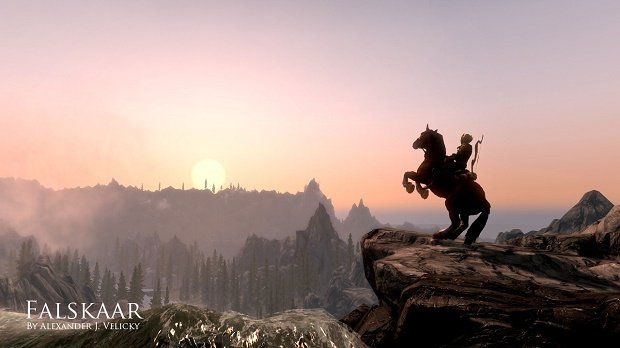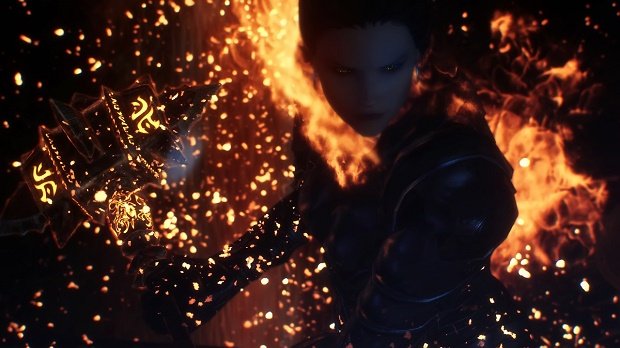How short-sighted pursuit of savings has failed the modding community
On April 22nd, Valve implemented a system in Steam, its digital marketplace, that would allow modders to charge money for their mods, thus allowing dedicated creators to earn something for their hard work. First implemented in Skyrim's Steam Workshop page, the plan would eventually roll out to a variety of other games. On April 27th, a mere five days later, Valve has backpedaled due to consumer pressure, completely removing the program and refunding anyone who purchased a mod over the last few days. Because complaining about paying people for the content they create is a thing that people do in 2015.

The program, as Valve originally planned, would allow people to take their modifications, or 'mods', and actually charge money for them. This was huge news - mods are typically free, as they effectively piggyback off of already established titles, adding new levels or making tweaks to the graphics or game engine. While Bethesda and Valve didn't make any money off these mods directly, they profited from modders’ free labor, which extended the life of the game far longer than most, both in sales as well as in the greater discussion. This program would have let Bethesda and Valve make some money, yes, but it also would have let modders actually make a bit of cash for all their hard work.
Now, I'm not saying that Steam's implementation of their paid user-created content system was perfect by any means. The revenue shares were heavily skewed toward Steam, who would take a 30% cut (same as they do on anything else on their storefront), and Bethesda, who would get 45% (because they made the program modders use to make money). There is a potential litany of legal issues, from creators building their mods on the backs of other people's work to flat out copyright infringement, which would require a lot of curating on Valve's part to mitigate - something Valve is historically not very good at. And Valve should have implemented this controversial program with a game that hadn't already built up a huge modding community. Every program Valve rolls out goes through a series of iteration (usually in beta) before it finally gets rolled out to the public, and it was a bit strange that the paid user mod program didn't go through the same process.

So no, allowing people to charge for user mods probably wasn't ready for prime time in its previously implemented state. But the absolute fervor surrounding its implementation; the religious fanaticism against allowing someone to charge real money for work they spent hours of their life on; the whirlwind that was the last five days, is emblematic of a problem Valve has effectively created for itself: the devaluation of video gaming.
It all started innocently enough. A weekend sale here. A holiday sale there. It was great for a while to be able to buy recent games at hugely discounted prices. Many even go as cheap as a buck. How can you turn a game that cheap down? It's a dollar.
But then, expectations for upcoming sales grew. Our Steam libraries grew fatter, filled with games we picked up on the cheap because they looked kinda cool, played once or twice, and dropped entirely. Paying full price, even for smaller $10-20 indie games seems like a silly idea, because there's always some kind of sale right around the corner, and thousands of games are all fighting for our attention. Why would I buy that new game when this one I've had my eye on for two months is now 40% off?
In a recent article at gamesindustry.biz, Gratuitous Space Battles dev Cliff Harris lamented about how much harder it is to release a game in 2015 than it was even two years ago. From the article: "'People moan that the price is too high, then say they only ever buy games at 50 percent off,' Harris said. 'There may be some logic there but I can't quite see it myself. Every game I've ever released on Steam has had a thread saying its cost too much. I suspect every game on Steam has that thread. I suspect it's the same posters too.'"
Sign up to the GamesRadar+ Newsletter
Weekly digests, tales from the communities you love, and more

And that's not even factoring in Early Access, where people can buy games that aren't finished, and those same unfinished games can get tossed into a holiday sale along with all the other AAA and indie titles being discounted. By a time the game on Early Access actually gets version-one-point-oh released, there's a good chance that game will have already gone through a gamut of Steam sales.
All of these things, the copious and expected sales, the lack of curation, Early Access - each alone doesn’t seem like much, but over time they add up to create a situation where pricing games becomes a race to the bottom. People become more and more reluctant to pay full-price for content, regardless of the original up-front cost, so games get priced lower and discounted more heavily much faster. It's happened on the App Store, where people with $600 devices find themselves reluctant to spend $5 on a new video game, so developers start implementing microtransactions to recoup the costs for their work. And when you take something that has previously been given away for free - like mods - then allow people to start charging money for them, it's easy to see how this issue became a powder keg that blew up in such a short amount of time.
A Change.org petition amassed over 130,000 signatures over the course of a handful of days, and has officially been deemed a success by its original creators. "We have united and have won. We got Valve and Bethesda to roll back the paywall that they have created and saved our modding community." This statement misses a few important things. Allowing creators to charge for their content was never a 'paywall'. A paywall implies that the only way to access all of the content is to pay a fee - much like paying for Xbox Live in order to use Netflix. There were still going to be free mods. It would have been up to the individual user whether to charge for their mods, and many are perfectly happy with tinkering away on them as a hobby and giving them away to the community.

But the thing this petition gets so very, gloriously wrong is the incredibly entitled thinking that someone does not deserve compensation for their hard work. Yes, the modding community has been largely giving work away free for years, but that's mostly because of the way end user licensing agreements work. For the first time in gaming history, we had a huge platform (Steam) working with a huge third-party publisher (Bethesda), to allow creators a chance to make a few dollars on content made from someone else's game. Being appropriately compensated for a labor of love is a hugely liberating experience, and this could have been a game changer for the modding community as a whole. It's something that many modders see as a positive - not perfect, but definitely a start. But no; shut it down, because mods should always be free, and why bother buying anything when it should be on sale, and so on.
Media is at a strange crossroads in human history. We are currently drowning in a wealth of quality content. Amazing music, fantastic TV shows and films, so many more books, games, comics, and articles than one human could possibly consume in a lifetime, all available at our fingertips. But we also want to spend as little as possible accessing said media - preferably free, if we can help it. People don't just want one game, they want all the games, and they want all the content that gets made for them to be available for free. But someone has to make the stuff we like, and that someone has to put a roof over their head, pay the electric bill, and put food on the table. If they can't get properly compensated for their work, they'll move onto something that will, and they'll stop creating. Which means less cool stuff for everyone.
No one is saying that the plan as posed by Valve was perfect. Hell, Steam itself was pretty worthless for the first year or two of its inception. But getting upset at Valve for finding a way to cut content creators in on some profits just because you feel entitled to free shit seems incredibly backwards to me. But I'm not too worried - there's no way in hell that this program is going to disappear entirely, and it's only a matter of time before paid user-generated content makes a comeback somewhere else down the line. I just hope people find enough value in it to actually pay for it.
Image credits: Thumbnail: Protest Sign: No Paying for Mods by amusquiz; Image two: Falskaar by Yatagan; Image three: Deathwing Inspired Alduin Reloaded by johnskyrim; Image four: Sulfuras, the Reclaimed Hand by johnskyrim



